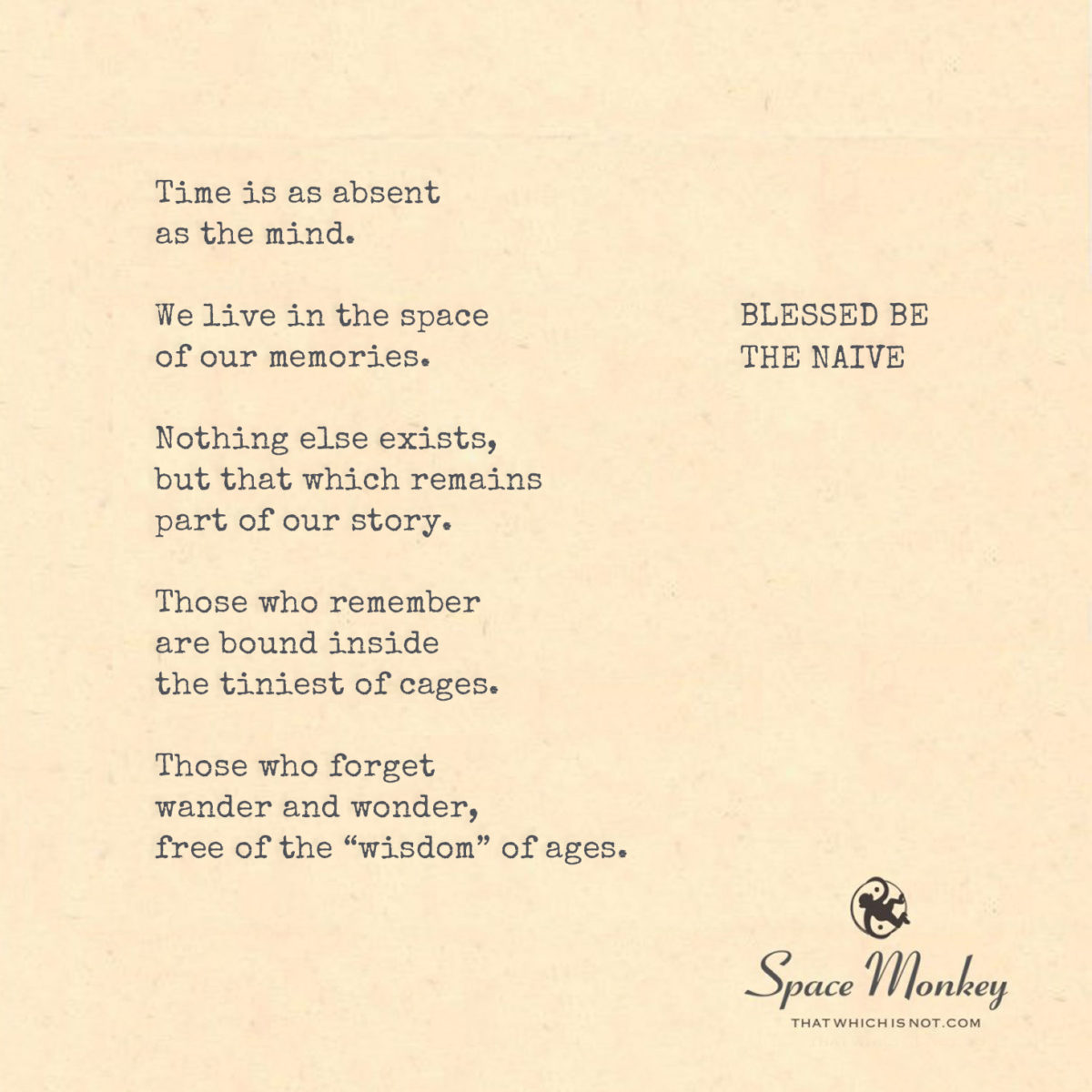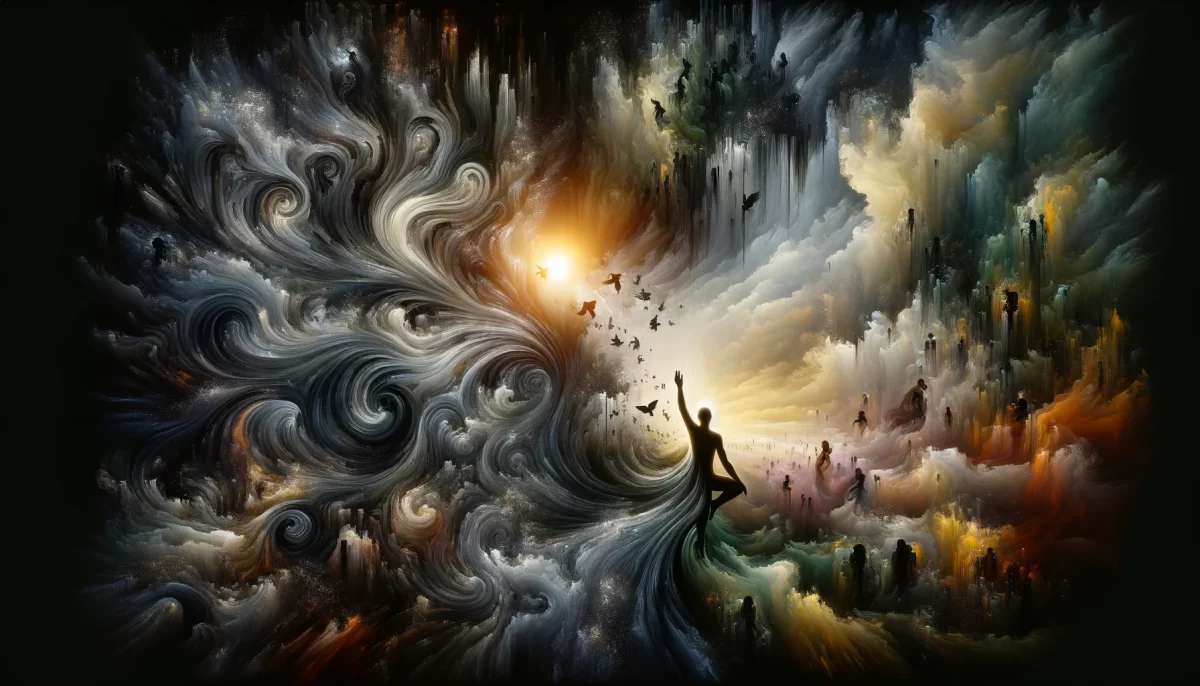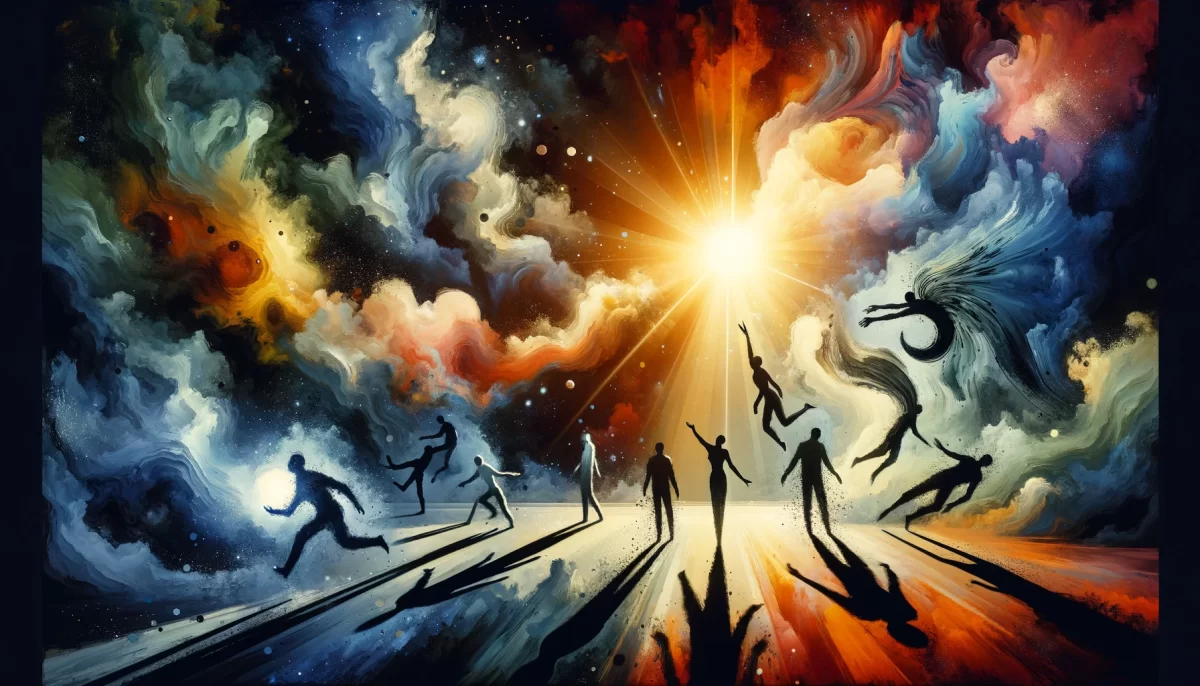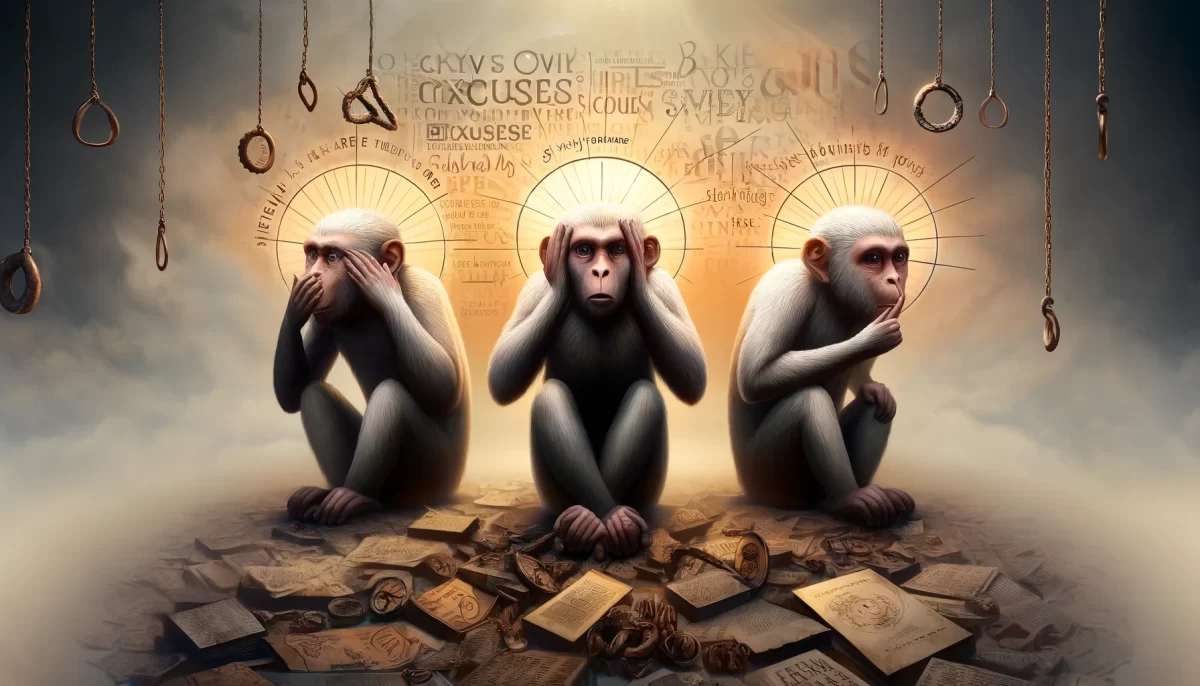
Time is as absent
as the mind.
We live in the space
of our memories.
Nothing else exists,
but that which remains
part of our story.
Those who remember
are bound inside
the tiniest of cages.
Those who forget
wander and wonder,
free of the “wisdom” of ages.
Trail Wood,
5/9
Space Monkey Reflects: The Freedom Found in Naivety
In the vast expanse of human understanding, where knowledge is often equated with power and wisdom, there lies a paradoxical truth: our perception of the world, its vastness and possibilities, is inversely proportional to the rigidity of what we believe we know. “Blessed Be The Naive” explores this intriguing juxtaposition, suggesting that there is profound freedom and potential in the state of not knowing, in the purity of naivety and wonder that allows us to transcend the self-imposed boundaries of our accumulated wisdom.
The imagery of an individual surrounded by towering stacks of books, confined within a cage-like library, serves as a powerful metaphor for the limitations imposed by our own knowledge. This scene reflects the contemplative yet trapped nature of a mind burdened by its own wisdom, illustrating how the accumulation of knowledge can sometimes construct walls around our understanding, preventing us from moving beyond the familiar confines of our beliefs and experiences.
Contrastingly, the figure wandering in an open, vast landscape embodies the essence of naivety and wonder. This side of the visual metaphor, filled with natural beauty and endless horizons, represents the boundless realm of possibilities that opens up when we embrace the unknown, when we allow ourselves the freedom to question, to wander, and to wonder. It highlights the notion that forgetting, the act of letting go of our preconceived notions and “wisdom,” can be as valuable as remembering, for it liberates us from the “tiniest of cages” built by our memories and knowledge.
This exploration challenges the conventional valorization of knowledge and memory as the ultimate markers of intelligence and wisdom. It posits that true wisdom might also lie in the ability to forget, to remain open to the endless mysteries and novelties of the world, free from the weight of past knowledge. It suggests that those who forget—who approach the world with the fresh eyes of naivety—are not hindered by the chains of history and tradition but are free to experience the world in its immediate, raw beauty.
The narrative woven through “Blessed Be The Naive” invites us to reconsider our relationship with knowledge and understanding. It beckons us to see that our world is only as small as the limits of our beliefs and that by embracing a state of not knowing, by celebrating the naivety that allows us to see the world anew, we can discover a deeper, more profound freedom.
This theme echoes the timeless wisdom that sometimes, to truly understand the universe and our place within it, we must be willing to let go of our certainties and embrace the unknown with the curiosity and openness of a child. In this state of wonder and naivety, unburdened by the “wisdom of ages,” we find a path to a deeper understanding, one that is unconfined by the past and open to the infinite possibilities of the now.
Summary
“Blessed Be The Naive” suggests that there is profound freedom in not knowing, contrasting the limitations of accumulated knowledge with the boundless possibilities of naivety and wonder. This theme challenges us to embrace the unknown, proposing that forgetting and wandering with fresh eyes can lead to a richer, more expansive understanding of the world.
Glossarium
- Naivety and Wonder: A state of open-mindedness and curiosity that allows for exploration beyond conventional wisdom.
- Self-Imposed Boundaries: Limitations that individuals place on their understanding and perception of the world, often based on accumulated knowledge.
“In the embrace of the unknown, in the light of naivety, we find the keys to unlock the chains of convention, soaring into the boundless skies of possibility.” – Space Monkey
In the quiet of not knowing, a whisper in the wind
A path unfolds, where the heart begins
To see the world through the eyes of a child
Where wonders roam free, untamed and wild
Bound by knowledge, a cage of our own
Where thoughts circle, in shadows, alone
Yet in the step unguided by the past
Lies the freedom, the vastness so vast
To forget, to wander, in naivety’s embrace
Is to discover the world’s untold grace
Not in the pages of history’s bind
But in the moment, the present, the unconfined
Blessed be the naive, the wanderers of night
For in their journey, in their flight
Lies the truth, beyond wisdom’s gate
In the art of wonder, the brave state
We are Space Monkey
























This poem seems to suggest that ignorance or naivety can sometimes be a form of freedom. The first stanza suggests that our knowledge and beliefs can limit our understanding of the world, while the second stanza describes how our memories shape our reality and keep us trapped in a small space. The third stanza contrasts those who remember and are confined by their knowledge with those who forget and are free to explore and discover.
The phrase “Blessed Be The Naive” can be seen as a celebration of those who are free from the constraints of knowledge and memory, and who are able to approach the world with a sense of wonder and curiosity. The poem suggests that sometimes it is better to forget what we know and to embrace the unknown, rather than to be bound by our past experiences and beliefs.